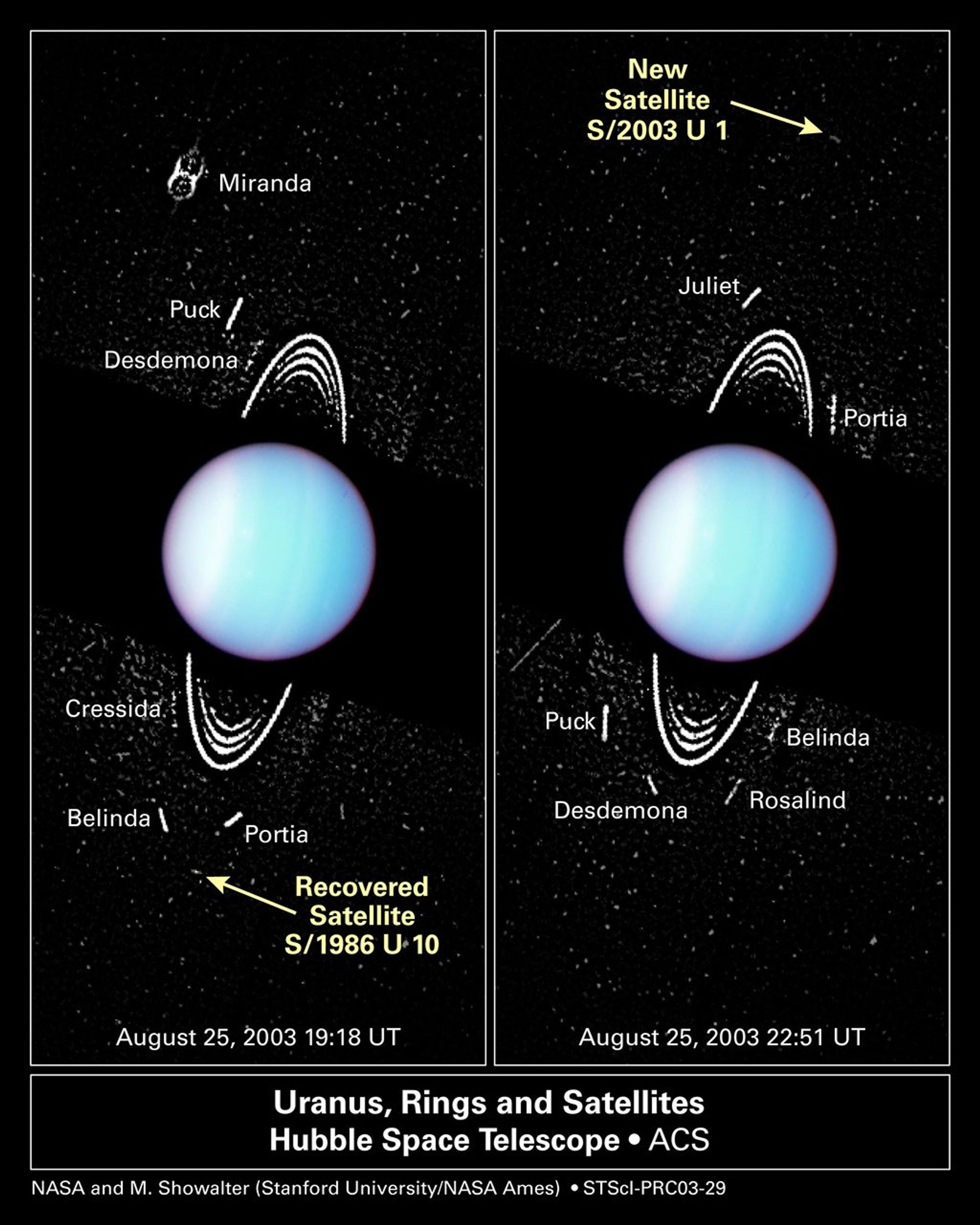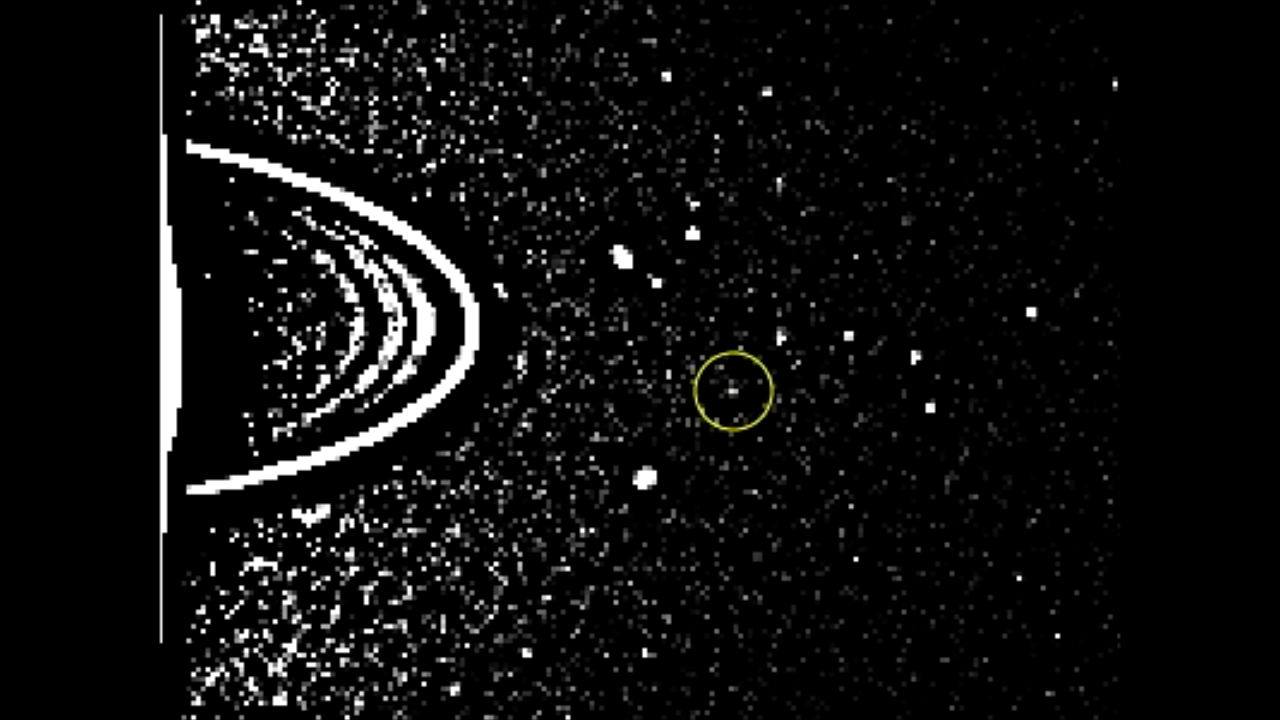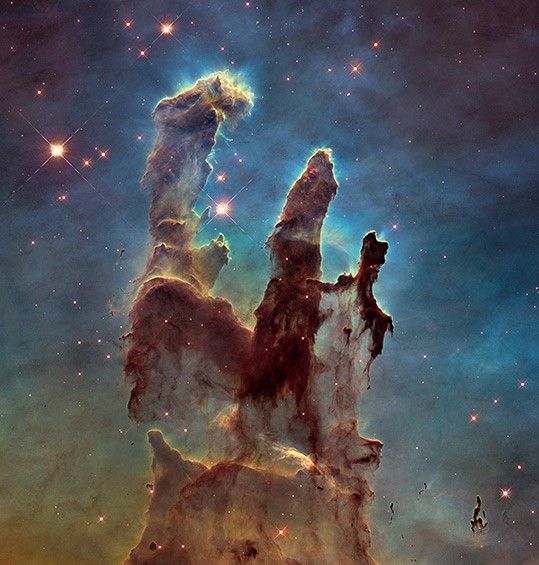1 min read
Uranus: Rings, Satellites 19:18 UT

About the Object
- DistanceDistanceThe physical distance from Earth to the astronomical object. Distances within our solar system are usually measured in Astronomical Units (AU). Distances between stars are usually measured in light-years. Interstellar distances can also be measured in parsecs.The semi-major axis of Uranus's orbit about the sun is 19.18 Astronomical Units (A.U.) or roughly 2.9 billion km. Moon S/2003 U 1 is 60,600 miles (97,700 km) away from Uranus. Moon S/2003 U 2 is 46,400 miles (74,800 km) away from Uranus.
- DimensionsDimensionsThe physical size of the object or the apparent angle it subtends on the sky.The planet (without rings) has a diameter of roughly 32,000 miles (51,000 km) at the equator. MoonS/2003 U 1 is 10 miles (16 km) wide. Moon S/2003 U 2 is 8 miles (12 km) wide.
About the Data
- Data DescriptionData DescriptionProposal: A description of the observations, their scientific justification, and the links to the data available in the science archive.
Science Team: The astronomers who planned the observations and analyzed the data. "PI" refers to the Principal Investigator.This image was created from HST data from proposal 9823: M. Showalter (Stanford University/NASA Ames) and J. Lissauer (NASA Ames). - InstrumentInstrumentThe science instrument used to produce the data.HST>ACS/HRC
- Exposure DatesExposure DatesThe date(s) that the telescope made its observations and the total exposure time.August 25, 2003
- FiltersFiltersThe camera filters that were used in the science observations.F330W (U)), F475W (g), F606W (V), F814W (I), CLEAR
- Object NameObject NameA name or catalog number that astronomers use to identify an astronomical object.Uranus
- Object DescriptionObject DescriptionThe type of astronomical object.Satellites (moons)
- Release DateSeptember 25, 2003
- Science ReleaseHubble Uncovers Smallest Moons Yet Seen Around Uranus
- Credit
Related Images & Videos

Hubble Spies Tiny Moons Circling Uranus
These images, taken with the NASA Hubble Space Telescope's Advanced Camera for Surveys (ACS), show several faint moons circling Uranus, including a newly detected moon and a rediscovered satellite. The planet's ring system can also be seen. The arrow in the frame at right points...

Time-Lapse of S/2003 U 1 Oribiting Uranus
This time-lapse movie shows a newly discovered moon orbiting Uranus. The movie was made from a series of 4-minute exposures taken Aug. 25, 2003 with the NASA Hubble Space Telescope's Advanced Camera for Surveys. The exposures were taken 5 minutes apart. The moon is temporarily...

Time-Lapse of S/2003 U 2 Orbiting Uranus
This time-lapse movie shows a newly discovered moon orbiting Uranus. The movie was made from a series of 4-minute exposures taken Aug. 25, 2003 with the NASA Hubble Space Telescope's Advanced Camera for Surveys. The exposures were taken 5 minutes apart. The moon, Uranus's...
Share
Details
Claire Andreoli
NASA’s Goddard Space Flight Center
Greenbelt, Maryland
claire.andreoli@nasa.gov


































